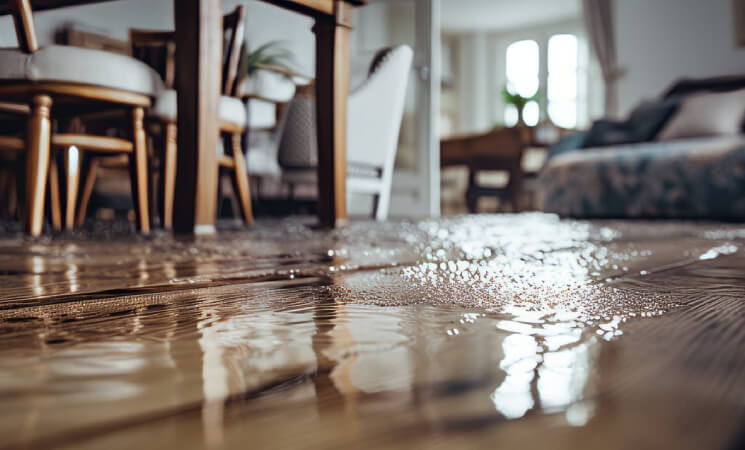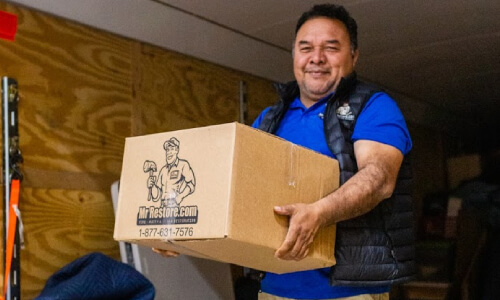Emergencies in Dallas, Texas, can come in a variety of forms. From natural disasters to unexpected fires, it is important to have your family and your home ready for any emergency. Preparing ahead of time will help alleviate stress and will ensure that your family is safe and fully prepared during any disaster. It is best to assemble an emergency plan, create an emergency kit, and have preventative measures in place. Once you have taken all of our necessary precautions, check regularly with FEMA to ensure you are aware of upcoming warnings.
Preparing an Emergency Plan
Sit down with your family and discuss the course of action that will be taken when a natural disaster or other emergency arises. You may need to implement a plan quickly due to severe winds, a growing fire, or a nearby tornado. When everyone knows where to go and what to do, it will prevent panic and could save lives. Keep a copy of your emergency plan in a place that is easily accessible. When discussing an emergency plan with your family, be sure to cover the following topics:
- Evacuation Route – Discuss with your family the path you will take to evacuate the home in each room of the house. Be sure to cover what will happen if the main entrance is not safe to use. You should also be prepared to evacuate your city and know which routes are the best. Check the U.S. Department of Transportation for emergency evacuation routes for Dallas and surrounding areas in case a state of emergency is called.
- List of emergency contacts – Be sure to include important numbers, including family doctors, the nearest emergency room, local police and fire departments, children's school and daycares, and trusted neighbors and family members.
- Where to meet for shelter – Hurricanes and tornadoes will require immediate shelter to stay safe. Discuss with your family where to meet when the State of Emergency is called. The shelter should be selected on the lowest level of the building and in an interior room away from windows, doors, outside walls, and corners.
- Responsibilities of each member – Establish ahead of time who is in charge of specific things, such as who will drive, who will grab the emergency kit, who will grab important documents, and who will take care of small children, the elderly, and pets.
- Emergency Kits – Know where you keep your emergency supplies. Below is a detailed list of important things to include in your emergency kit. Ensure each member of the household knows where they are located.
Preparing an Emergency Kit
It is impossible to know exactly what items you will need during an emergency. Your power may be out for a couple of days due to a storm, or your kitchen may have been victim to a fire. No matter what the circumstances are, it is likely that you will need a variety of necessities. An essential item to prepare before an emergency is a home inventory of your home's assets in case they are destroyed and need to be reported to your insurance carrier. Consider specifically what your family needs and the following items to place in your emergency kit:
- Non-Perishable Food – at least a (3-day supply)
- Water – one gallon per person per day (3-day supply)
- Radio to receive emergency warnings and alerts
- Flashlight and Batteries
- Change of clothes for each person
- Manual can opener for food (or consider cans with easy open tops)
- First aid kit
- Portable cell phone charger and batteries
- Personal hygiene items
- Prescription and other medications, if needed
- Cash or traveler's checks – remember, ATMs may not be working if power is down
- Pet food and extra water
- Warm blanket
- Infant formula/food and diapers
- Shoes
- Games, books, puzzles, and other entertaining activities
Other Preventive Precautions
The best way to be prepared for catastrophes is to be sure you are practicing home safety measures. In order to keep your family safe and to prevent costly water and fire damage, practice the following preventive tips:
- Install and routinely check fire and smoke alarms in every room of your house
- Be sure you have a working fire extinguisher on each floor of your home
- Ensure address numbers on your home and mailbox are easily visible for emergency responders
- Routinely check all pipes to ensure they are working properly and are not leaking
- Routinely check appliances, including washing machines, dishwashers, HVAC units, and dryers to ensure they are working properly
- Remove all projectiles, including lawn furniture and large tree branches, before a storm
- Routinely clean gutters and drainpipes to prevent flooding during a storm
- Inspect your roof for any leaks or weaknesses to prevent leaks
Sometimes, even the most prepared homes fall victim to storm, fire, and water damage. If you find your home damaged after an emergency, do not hesitate to contact Mr. Restore. We have over 50 years of restoration experience. Our certified technicians and experts have the most advanced technology and techniques to help you and your family recover from an emergency.






